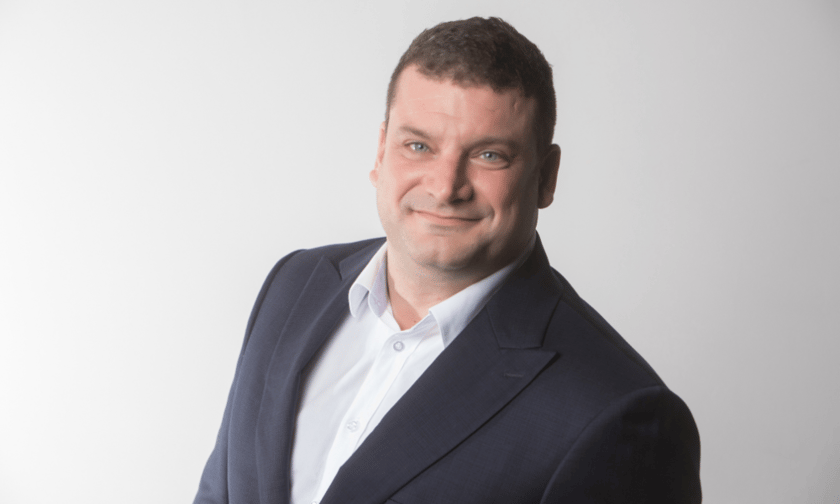

Mortgage aggregator Finsure Group has declared Uber's successful appeal against Revenue NSW as a positive outcome for the broker industry.
It comes as mortgage aggregators such as Finsure and LMG face their own legal battles with the state tax authority over backdated payroll tax.
On September 6, the Supreme Court of New South Wales ruled that the payments Uber makes to its drivers is not "for or in relation to the performance of work", which is one of the key tests for the extended payroll tax provisions to apply.
Consequently, those payments should not be classified as wages, according to the Payroll Tax Act 2007 of New South Wales.
Finsure CEO Simon Bednar (pictured above) said the successful challenge by Uber against the Revenue NSW payroll tax “is an optimistic outcome in Finsure’s eyes”.
“Similar to Uber, we are a service platform that distributes revenue from lender partners to the brokers in our network, all of whom operate as independent entities,” Bednar said.
Uber successfully appealed six payroll tax assessments, totalling around $81 million, issued by the Chief Commissioner of State Revenue for the 2015-2020 financial years.
The NSW Supreme Court ruled that payments made by Uber to drivers are not “for or in relation to the performance of work” and, therefore, should not be considered wages under the Payroll Tax Act 2007 (NSW).
The court recognised that Uber's “Driver App” and “Rider App” serve as platforms connecting drivers and riders, enabling transport services.
Justice Hammerschlag noted that activities like driving, rating riders, and referring new drivers are services related to work and provided under a contract per Section 32 (1)(b) of the Act.
However, the contracts merely grant drivers the right to use the app, not an obligation to work.
Crucially, Justice Hammerschlag determined that payments to drivers do not qualify as wages under Section 35 of the Act.
He clarified that Uber acts only as a "payment collection agent," stating, “It is not Uber who pays the driver. The rider does that.”
By the time Uber transfers the payment, the driver is already legally considered paid by the rider.
In terms of how the Uber ruling effects their own, Bednar pointed out that each case is to be judged on its own merit and “not one case is reflective of our entire industry”.
If Revenue NSW is successful with their cases against LMG and Finsure, payroll tax will be applicable to all aggregators on commissions paid to brokerages with less than two brokers.
“This could be the tip of the iceberg and have ramifications across the mortgage broking industry nationwide,” Bednar said in January after announcing it would also be taking the case to the Supreme Court.
LMG, which launched its payroll tax appeal in May 2023, had argued that the payroll tax should not be payable because brokers are customers of aggregators, not employees.
In April, the NSW Supreme Court ruled that the aggregator was liable to pay the tax but granted it a number of exemptions.
These include engaging an offshore loan processor; engaging a family member in the business; engaging another business as a genuine service provider.
After the Uber ruling, LMG executive chairperson Sam White announced the aggregator would be “going through the decision details to consider the merits of a possible Loan Market appeal”.
Similarly, Bednar noted: “We believe the Uber ruling will offer a clear example to help Revenue NSW better understand the aggregation business model, and not apply retrospective financial costs that will negatively impact ordinary Australians that rely on brokers to obtain a loan.”
Payroll tax has been an issue rumbling around the mortgage industry for several years.
However, with the LMG and Finsure cases slowly building momentum, revenue tax is now viewed by many as an existential threat to the industry.
Speaking at National Finance Brokers Day on August 21, the panel of broker association leaders shared their thoughts on the issue.
MFAA CEO Anja Pannek called Revenue NSW’s case against aggregators as “completely ridiculous” and “an overstretch of application of law”.
“Our position at the MFAA has been and continues to be that we see Revenue NSW’s application of payroll ta to aggregator mortgage broking arrangements as just farcical,” Pannek said.
FBAA managing director Peter White called for calm.
“There’s been some other instances over the last couple of months in South Australia, WA, and other jurisdictions, where they tried to apply payroll tax to other industries, and they got overturned by the court,” White said.
“There’s some things in court that are playing out that helps create a precedent.”
Speaking to a roomful of brokers, White said, “What do we need to do here? Chill. Don’t stress. Let the lawyers and heads of aggregators involved deal with it as it plays out.”
By challenging the Revenue NSW assessment, Finsure said it wants to draw a line.
“We have no doubt that other State Revenue offices are watching the outcome of the current cases with keen interest so a successful outcome for Finsure will no doubt dissuade further action and help prevent unfair financial charges that could cripple our industry,” Bednar said.
“It’s all still to be determined but I can tell you one thing for certain - Finsure is up for the fight.”
